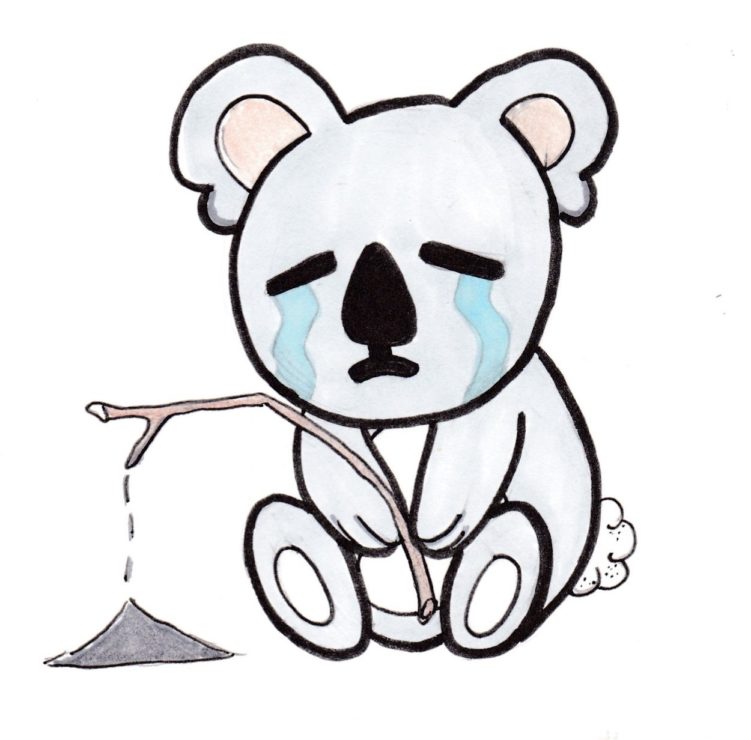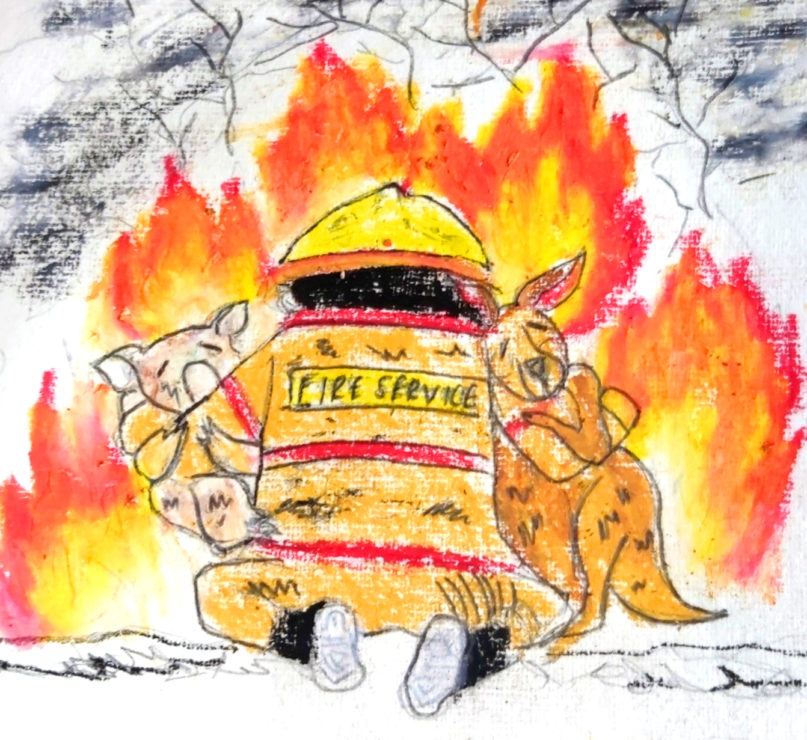Australian Prime Minister Scott Morrison’s refusal to accept the realities of climate change is putting his entire country at risk

Depending on one’s political bent, there is a host of reasons to dislike the current Australian prime minister. Scott Morrison landed solidly in my black books in March 2019 when he used International Women’s Day as an opportunity to assure Australian men that they should not have to make way for women’s empowerment — completely missing the point that the only men that women wish to replace in the workforce are the incompetent and/or violent ones, and eliciting my enduring sympathy for his daughters.
My opinion of Morrison has only gone downhill from there, largely due to his government’s dismissive attitude towards climate change, particularly given the fires that have been devastating Australia for the past four months. In November, Deputy Prime Minister Michael McCormack called the obvious link drawn between the fires and the coal industry by Green politicians “the ravings of some pure, enlightened, and woke capital-city greenies,” and Morrison chose to blame the situation on accidents, arson, and dry lightning strikes, exacerbated by drought and “other issues.”
Morrison leads the Liberal party (in Australia, that means conservative) whose policies on climate change can be summed up by an incident reminiscent of the time an American Republican senator brought a snowball into congress as evidence that global warming was fake. In 2017, when he was Australia’s treasurer, Morrison brought a lump of coal into the House of Representatives as a symbol of how the Liberal government under then-Prime Minister Malcolm Turnbull would keep the lights on and power prices low.
We know for certain that fossil fuels and their carbon emissions are linked to climate change, and that if we want to curb extreme weather events and natural disasters in the future, then we need to drastically reduce emissions.
Despite renewable energy sources gradually contributing more and more, Australia is undeniably powered by coal. Eighty per cent of the country’s electricity comes from coal and gas, with coal power being the majority. Possibly even more important to the Liberal party is that coal is one of Australia’s most important exports, alongside iron ore — Australia has rich mineral resources, so mining is a big industry. It’s understandable why Australia’s “conservative party” would want to keep the natural resource sector and all the people it employs on their side, carbon emissions be damned. After all, ours does the same thing. It’s almost understandable, when you consider the complete lack of credible options and the general craziness that plagues Australian politics, how Morrison won last year’s election.
But what Morrison has failed to recognize over the past few years (alongside Scheer, Trump, Bolsonaro, and a disturbing number of others), is that the world is past the point where continuing to champion fossil fuels is acceptable. The fires in B.C., Brazil, Siberia, California, and now Australia have told us, in no uncertain terms, that the world has changed.
We know for certain that fossil fuels and their carbon emissions are linked to climate change, and that if we want to curb extreme weather events and natural disasters in the future, then we need to drastically reduce emissions. The global average temperature has already risen by 1.1ºC. Arctic ice is melting at a rate of 12.85 per cent per decade. The ocean is becoming warmer and more acidic. “Megafires” (those that burn more than 40 000 hectares) are occurring on unprecedented scales.

The situation in Australia is a perfect example of the havoc wreaked by climate change. 2019 was both the warmest and driest year on record for Australia. As a whole, the country saw 40 per cent less rainfall than average, with New South Wales (N.S.W.) and southern Queensland experiencing especially severe drought. There was widespread severe fire weather throughout the year, causing the national annual accumulated Forest Fire Danger Index to be the highest it has been since the country started keeping those records in 1950.
January and February, the middle of Australian summer, are generally the worst months for bushfires in southeast Australia, but the fires that are currently raging began months early, and have continued with a devastating vengeance. The excessive heat and dryness enabled fires that have burned more than 10 million hectares (the Amazon fires burned over 900 000 hectares), destroyed over 2 100 homes, killed 28 people, and killed half a billion animals in N.S.W. alone. The University of Sydney estimates that one billion animals have died nationwide, and that some species may go extinct as a direct result of these fires.
Given all of this, it is utterly incomprehensible is how Morrison and his party have reacted to the fires ravaging their country. Morrison has stated that, while he recognizes the connection between global climate change and the “weather events” and “broader fire events” experienced by Australia, it is “not a credible suggestion” to link these specific fires to climate change. After all, Australia has always experienced bushfires. Why would these ones be anything other than the usual kind started by carelessness, arson, and lightning, exacerbated by drought?
If a burning country is the cost, it is hard to see how clinging to destructive industries is worth it.
It is this willful ignorance that makes Morrison, his party, and others like him so dangerous. For the past couple of decades, Australia’s fires have been getting bigger and more destructive, but Morrison is doubling down, calling curbing the coal industry “reckless,” and refusing to place any more importance on combatting climate change.
The United Nations’ Intergovernmental Panel on Climate Change (IPCC) stated in their report in Oct. 2018 that phasing out coal by 2050 is crucial to preventing the global average temperature from rising more than 1.5ºC. But when that report came out, Deputy Prime Minister McCormack, stated that Australia would continue to exploit coal, and that the report would not cause any policy change — and true to his word, the Liberals continue to push coal. In March 2019, a deal was signed to build two new coal-fired power stations in the Hunter region of N.S.W. Two months later, Morrison’s government gave Adani, an Indian conglomerate, the go-ahead to begin a much-contested massive coal mining project in Queensland’s Galilee Basin, something that critics say could pave the way for six more mines in the area.
Now, Morrison is trying to dodge the reality that climate change caused in large part by emissions from industries like his beloved coal mining has set his country ablaze. But Morrison’s deflections cannot change the fact that this won’t be the last time fire ravages Australia. If the world cannot reduce its emissions enough to prevent a temperature rise past 1.5ºC, we don’t know how much worse the fires will get, how many wildlife habitats, crop fields, towns, and families will be destroyed. If a burning country is the cost, it is hard to see how clinging to destructive industries is worth it. It is far past time for Morrison to pull his head out of whichever coal mine he’s stuck it in, and start thinking of how to keep what remains of his country safe.






